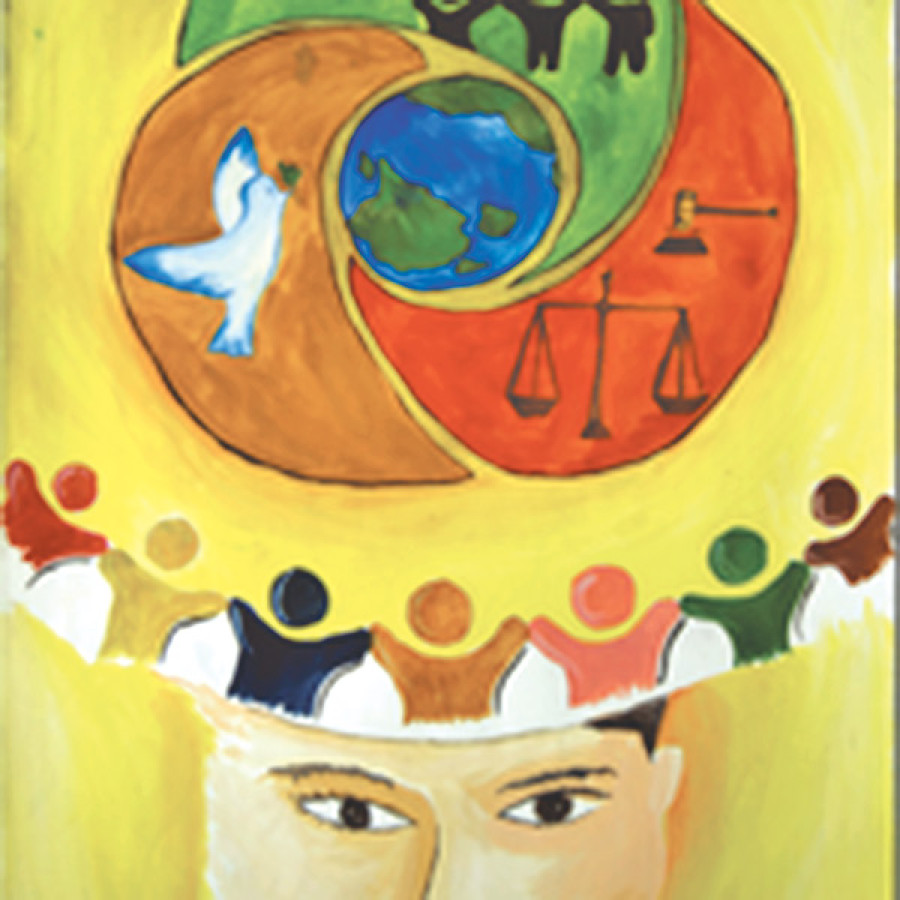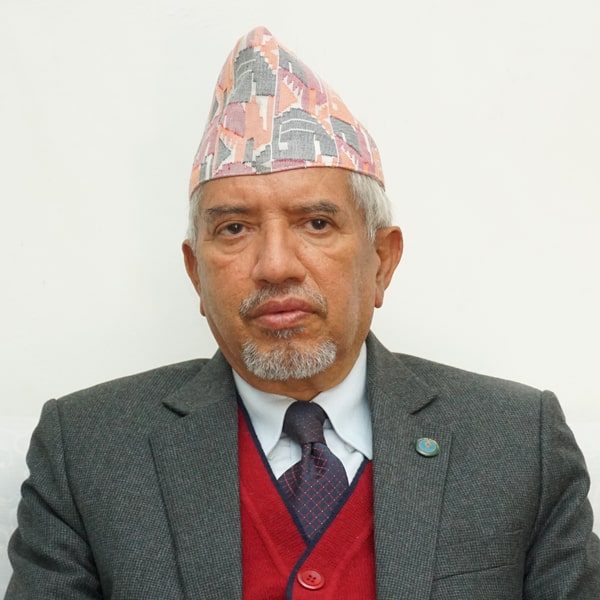Opinion
If you want peace, work for justice
The Sustainable Development Goals (SDGs) were set by world leaders at the United Nations after intensive deliberation, negotiation and reviews of the experiences of the Millennium Development Goals (MDGs).
Surya Dhungel
The Sustainable Development Goals (SDGs) were set by world leaders at the United Nations after intensive deliberation, negotiation and reviews of the experiences of the Millennium Development Goals (MDGs). The SDGs have values that can benefit developing democracies like Nepal in several ways. While all the goals are interconnected, the SDG 16 is significant for post-conflict societies and specifically for Nepal’s emerging democratic federation, as it aims ‘to promote peaceful and inclusive societies for sustainable development, provide access to justice for all and build effective, accountable and inclusive institutions at all levels’. It has some special elements that the MDGs did not have, such as peace, access to justice and inclusivity.
Nepal’s new constitution will be fully operational only after the elections of three levels of federal governmental institutions; these should be held by January 2018. The prospect of meeting most of Nepal’s SDG targets within 2030 will be high only if the federal, provincial and local governments are filled out through inclusive electoral processes. Inclusivity, egalitarianism, social justice and good, corruption free governance are the four pillars of the new constitution—which itself is the product of intensive post-conflict peace building negotiations and participatory constitution-making exercises. Centuries old centralised authoritarianism and discriminatory social practices, and nearly seven decades of political struggle—including the decade-long armed conflict—led to the social and political transformation of the state, and eventually culminated in the establishment of a federal democratic republic. Hence, peace, stability and development are what the country aspires for. Functional constitutionalism, good governance and a rule of law are pre-conditions for social justice and economic development, and a society free from violence and discrimination.
Importance of connectivity
Active engagement of an independent justice system, and autonomous constitutional bodies designed to function as watchdog institutions are crucial for safeguarding and ensuring people’s fundamental human rights and socio-economic justice. Well-functioning constitutional watchdogs would help to promote inclusivity and fair representation; they would mitigate all forms of discrimination by protecting interests of the marginalised and minority groups. These would, in effect, help Nepal achieve the SDGs, especially goals 16 and 17.
Nepal’s development goals and its aspiration to graduate to a developing country by 2022, will remain a dream if the elected state machinery is not activated for the execution of SDGs.
A strong focus on good governance to mitigate corruption by ensuring transparency, public accountability and effective delivery of basic services at the grassroots level will help to achieve SDG 1, aimed at ending poverty. Without realising SDG 1, achieving SDG 16 is almost impossible. Lack of appreciation of linkages and interdependence of development goals and accomplishment processes has hitherto been a core problem for Nepal. An integrated and decentralised approach is thus recognised in the constitution, and in the evolving planning process as a key to good governance and economic development. Thus, SDG 1, SDG 16 and SDG 17 clearly reflect these values and how they are connected.
Benefits for all
A constitutional guarantee of equality alone is not sufficient to end discrimination and bring equality for all; the state must also provide weaker sections of the community with equal opportunities to participate in the major decision making processes. Equally important is the sharing of benefits from economic development. It is commendable that the supreme law of the land incorporates broad constitutional rights of equality and equal opportunities. These rights are further supported by affirmative provisions and inclusivity clauses in the constitution, followed by legislation and state initiated programmes to let people enjoy these rights. However, enormous hurdles stand in the way of realising these legal promises; they will continue to be a problem unless distributive devices to share economic achievements are not made effective.
Development processes start at two levels. One level is the central level, where national development programmes are initiated by sectorial ministries on matters of national concern. The second process begins at the local level, where programmes are initiated based on specific needs of the local areas concerned. Issues of basic needs and services are normally dealt with by local level organisations. The whole purpose of creating local representative institutions through decentralised or devolutionary mechanisms is to enable the local population to be involved in the local development process right from the identification of needs to the implementation of the programme. Use of local talents can be encouraged by inviting or allowing civil society actors to offer their specialty and expertise through transparent, broader and informal mechanisms. Otherwise, restricted and traditional governance and administrative practices block the innovation of new ideas, skills and knowledge.
Despite short-span experiments with several constitutionally elected governments in the past, and the promulgation of seven constitutions in less than seven decades; peace, democracy and the rule of law have not been fully institutionalised due to acute differences amongst the political parties. Corruption has spread, and is eating away at the prime elements of social values—making societal relations weak and hollow. Improvements in securing legal power for women, children and marginalised groups (such as Dalits and indigents) is on the rise and the judiciary is promoting their interests. However, exploitation of women and other underprivileged groups continues to grow due to poor law enforcement and corruption. Unfair economic practices to undermine laws and social values have resulted in a rise in corruption that is also affecting political institutions. Trafficking of women and children, and the societal distress inflicted on them through discriminatory social practices—and for short term economic gain—is beyond imagination. Mitigation of such practices is possible only through the creation of popular and accountable state institutions. An increase in the illegal practice of trans boundary financial flow, through corrupt means, have adverse social implications such as an increase in crime. Subsequent reports by Transparency International over the past few years indicate the seriousness of the problem. Effective implementation of SDG 16 is essential, but this will only be possible if the political environment improves and representative institutions are elected.
Dhungel is a Senior Advocate and Constitutional Lawyer; this article is part of the weekly series on SDGs




 18.12°C Kathmandu
18.12°C Kathmandu










